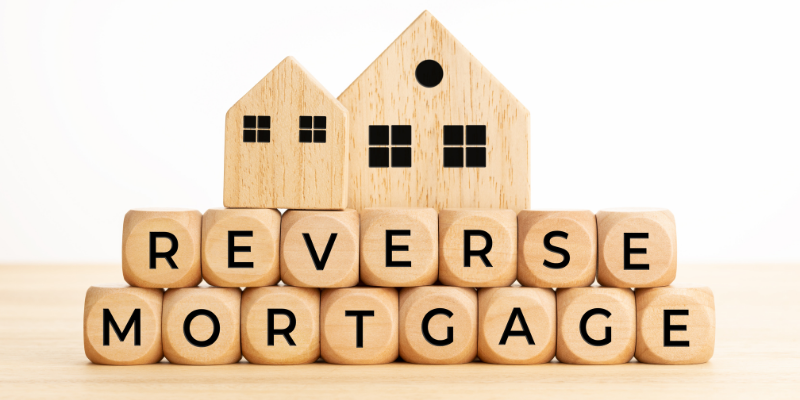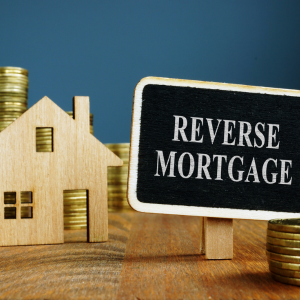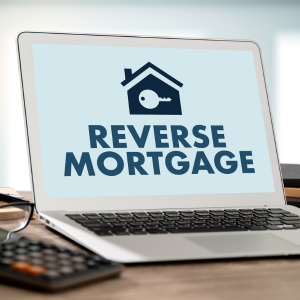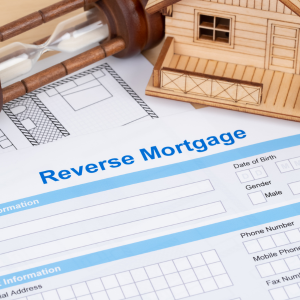
Understanding Reverse Mortgages: A Comprehensive Guide
Understanding reverse mortgages is crucial for Florida homeowners looking to sell their homes while benefiting from this financial tool. A reverse mortgage allows senior homeowners, typically 62 years or older, to convert part of their home equity into cash without having to sell the property or make monthly mortgage payments.
This financial arrangement can be particularly advantageous for those who need additional income during retirement. The loan is repaid when the homeowner sells the house, moves out permanently, or passes away.
In Florida’s vibrant real estate market, understanding how a reverse mortgage affects your home’s sale process is essential. By familiarizing yourself with terms like “home equity conversion mortgage” (HECM) and knowing about factors such as interest rates and loan origination fees, sellers can strategically plan the timing and marketing of their property.
When it comes time to sell a home with a reverse mortgage, working with experienced professionals is key to ensuring a smooth and profitable transaction. Revival Homebuyer in Florida understands the nuances of reverse mortgage sales and can help homeowners navigate the unique steps involved, from coordinating with lenders to managing title transfers and payoff requirements. With expert guidance, sellers can confidently move forward, knowing they’re maximizing their home’s value while complying with all financial obligations tied to their reverse mortgage.
Key Advantages of Selling a Home with a Reverse Mortgage

Selling a home with a reverse mortgage in Florida offers several key advantages that can greatly benefit homeowners. One of the primary benefits is the flexibility it provides in managing financial obligations, as proceeds from the sale can be used to settle the reverse mortgage balance, often without incurring additional debt.
This approach allows homeowners to capitalize on their home equity while avoiding out-of-pocket expenses. Additionally, selling property under these conditions can potentially lead to significant tax advantages, as proceeds from a reverse mortgage are typically not considered taxable income.
Another advantage is the opportunity for homeowners to downsize or relocate without the pressure of immediate repayment, making it an attractive option for retirees seeking lifestyle changes. Furthermore, by selling a home with a reverse mortgage, homeowners in Florida can leverage the competitive real estate market to maximize their returns and invest in more suitable housing options or retirement plans.
These strategic benefits make selling a home with a reverse mortgage an appealing choice for those looking to optimize their financial standing during retirement.
Legal Considerations When Selling Property with a Reverse Mortgage
When selling a home in Florida with a reverse mortgage, understanding the legal considerations is crucial to ensure compliance and avoid potential pitfalls. First, it’s important to recognize that a reverse mortgage is a loan against the equity of the home, which means it must be repaid when the property is sold.
The borrower or their heirs need to settle the outstanding balance of the reverse mortgage, which typically includes the loan principal, accrued interest, and any fees associated with it. In Florida, sellers must also adhere to state-specific real estate laws and disclosures when listing their property.
This includes providing full transparency about the existing reverse mortgage during negotiations with prospective buyers. Additionally, homeowners should consult with an attorney or a financial advisor specializing in real estate and reverse mortgages to navigate any complexities related to liens and title issues that could affect the sale process.
Understanding these legal aspects helps ensure a smooth transaction while adhering to both federal regulations and Florida state laws governing reverse mortgages.
Financial Implications of Selling Your Home with a Reverse Mortgage in Florida

Selling a home with a reverse mortgage in Florida involves several financial implications that homeowners must carefully consider. Reverse mortgages, primarily available to seniors, allow them to convert their home equity into cash without immediate repayment obligations.
However, when selling the property, the loan balance becomes due, which includes the principal borrowed amount plus any accrued interest and fees. In Florida, real estate market conditions can impact the sale price of your home, affecting how much equity remains after settling the reverse mortgage debt.
Homeowners should also account for potential closing costs and real estate agent commissions, which can further decrease net proceeds from the sale. Additionally, selling a home with a reverse mortgage might have tax implications, although proceeds used for purchasing another primary residence typically qualify for certain exemptions.
It’s essential to consult with financial advisors familiar with both reverse mortgages and Florida’s real estate laws to fully understand these financial impacts before proceeding with a sale. Also, selling your house after a few years can have tax implications and affect your financial strategy, so timing and planning are key.
Tax Consequences of Selling a Home Under a Reverse Mortgage Agreement
When selling a home under a reverse mortgage agreement in Florida, homeowners must carefully consider the tax consequences involved. A reverse mortgage allows seniors to convert home equity into cash without immediate repayment obligations.
However, once the property is sold, any proceeds exceeding the loan balance may be subject to capital gains tax. It’s crucial for sellers to understand that if their primary residence has appreciated significantly, they might face a sizable tax liability on the gain realized from the sale.
Additionally, Florida homeowners should be aware of potential impacts on state-specific property tax benefits and exemptions they previously enjoyed. Consulting with a qualified tax advisor or real estate attorney who understands the intricacies of reverse mortgages and Florida tax laws can provide clarity on how to minimize any adverse financial implications while ensuring compliance with federal and state regulations.
Preparing Your Florida Home for Sale with an Existing Reverse Mortgage

Preparing your Florida home for sale when it has an existing reverse mortgage involves several key steps to ensure a smooth transaction. First, it’s crucial to understand the terms of your reverse mortgage and how they impact the selling process.
Review your loan documents to determine any outstanding balance and consult with your lender to clarify payoff requirements. Enhancing your home’s curb appeal can significantly attract potential buyers; consider simple landscaping improvements and exterior updates that make a positive first impression.
Inside, decluttering and staging each room create an inviting atmosphere that showcases the home’s best features. Proper maintenance is essential; address necessary repairs such as fixing leaky faucets, updating light fixtures, or repairing damaged flooring.
Conducting a pre-sale inspection can identify issues that might deter buyers or affect negotiations. Partnering with a real estate agent experienced in Florida’s market will provide valuable insights into pricing strategies and marketing plans tailored to highlight your property’s strengths despite its reverse mortgage status.
Utilizing professional photography can enhance online listings, ensuring maximum exposure among interested buyers in today’s digital-driven marketplace. For more information or personalized support, feel free to contact us today.
Strategies for Marketing Homes with Reverse Mortgages in Florida
When marketing homes with reverse mortgages in Florida, it’s crucial to focus on strategies that highlight the unique benefits and opportunities these properties offer potential buyers. Emphasizing the prime Florida location is essential, as it appeals to retirees and vacationers alike who are drawn to the state’s warm climate and vibrant lifestyle.
Utilizing professional real estate photography and virtual tours can showcase the property’s best features, attracting more interest from distant buyers considering a move to Florida. Partnering with experienced real estate agents familiar with reverse mortgage nuances ensures that all legal aspects are handled smoothly, providing peace of mind for both sellers and buyers.
Additionally, targeting marketing efforts towards an older demographic using platforms like Facebook or targeted email campaigns can effectively reach those most likely to be interested in purchasing a home in Florida under these circumstances. Highlighting any upgrades or maintenance performed on the home due to funds from the reverse mortgage can also serve as a selling point by demonstrating added value and care given to the property.
For homeowners looking to sell a property with a reverse mortgage, connecting with cash home buyers in Florida and nearby cities can be a strategic advantage. These buyers often understand the unique timeline and payoff structure involved in reverse mortgage sales and are equipped to move quickly without the need for traditional financing. By marketing the property to this group, sellers can streamline the transaction process, avoid prolonged listing periods, and potentially secure a fair cash offer that aligns with their financial goals, especially in a competitive Florida housing market.
FAQs
What Are the Steps to Selling a House with a Reverse Mortgage?
Selling a property with a reverse mortgage in the state of Florida has some specific steps that should be dealt with very carefully. They include understanding the terms of your reverse mortgage and reaching out to your lender for proper communication.
Start by reaching out to your lender for reverse mortgages and inform them that you are planning to sell the property so as to receive a statement of account that contains the balance of the loan. This will determine the minimum selling price that you must have so that the debt can be paid off.
Now, search for a real estate expert who deals with properties that have reverse mortgages. They will definitely help you sell your home by tapping into their networks of cash home buyers in Tampa and other towns as well.
As a real estate expert, ensure that you tell potential buyers about the unique features of your home’s location so that they can help you sell it as soon as possible, especially those who love the Florida lifestyle. Also, ensure that you do all the repairs and improvements that are needed, as these can greatly help to increase the value of your home.
Once you obtain offers, coordinate closely with your real estate agent and lender to ensure that all contract requirements are fulfilled and that the sale proceeds will be enough to pay off the reverse mortgage balance. Selling a home in Florida with a reverse mortgage, while guided by professionals, can be a smooth and efficient process that maximizes your financial results.
Do I Have to Pay Capital Gains If I Sell During a Reverse Mortgage?
For homeowners selling a Florida home with a reverse mortgage, it is important to be aware of the potential tax consequences, such as capital gains taxes. Reverse mortgages permit homeowners aged 62 years and older to access a portion of their home equity as cash, which comes without the need for immediate repayment.
Still, there is the question of capital gains tax liability, which arises when selling property under reverse mortgage conditions. Capital gains taxes apply if the sale price of the home is greater than the initial purchase price, in addition to any value-enhancing improvements made over the years.
Luckily, a lot of homeowners are eligible for the primary residence exclusion, which permits them to exclude up to $250,000 ($500,000 for married couples) of capital gains. This exclusion may eliminate or significantly reduce the capital gains tax that would be payable on the sale of your Florida home with a reverse mortgage.
To ensure compliance and maximize financial outcomes while selling a reverse-mortgaged home in Florida, it is important to keep thorough records as well as consult with a tax professional.
What Occurs When A House With A Reverse Mortgage Is Sold?
While selling a house with reverse mortgages in Florida, it is very important to know the steps involved in order to make the process seamless. A reverse mortgage is a type of loan that permits an individual to take out part of their home equity and convert it to cash, typically granted to individuals 62 years or older. When the home is sold, the loan is required to be paid back.
The loan amount is settled with the payoff balance on the loan, any added interest, and additional fees. If the house is sold for a price greater than the loan value, then the rest is distributed to either the owner or the heirs.
In the situation where not all the value can be covered in the sale, most reverse mortgages are non-recourse loans. This means that neither you nor your heirs are obligated to pay more than the price for which the home can be liquidated. It is always best to consult a real estate agent in Florida, as they know the reverse mortgage niche and will guide you through the process.
Every transaction has its own pros and cons; the ones mentioned above will help when selling a property in Florida that has a reverse mortgage. Gaining insight into related legal complexities, such as Understanding Squatters Rights, ensures you’re fully informed when navigating property transfers—especially when dealing with vacant homes or long-unoccupied properties, which may be more vulnerable to adverse possession claims.
What Is the 95% Rule on a Reverse Mortgage?
When selling your home in Florida that has a reverse mortgage, it is extremely important to pay attention to the 95% rule, as it is very crucial in dealing with the payoff. The 95% rule states that if the balance of the loan on the reverse mortgage is higher than the current market price of the home, you or your heirs will have to pay only 95 percent of the appraised value.
This ensures you or your estate owes nothing greater than the amount required to settle the loan, which simplifies financial structuring. In the fast-changing world of real estate in Florida, knowing where this rule fits in can help sellers formulate a game plan to have the best tactical advantage during sales, thus making the maximum financial gain.
Having knowledge of the 95% rule means the worries of shortfalls are eliminated, thus giving more freedom to the decision-making for a homeowner with a reverse mortgage during home transition.
Looking for a fast and simple way to sell your house? Maybe you want to avoid wasting time dealing with long sales processes or tedious home repairs, or you are looking for a stress-free sale. With Revival Homebuyer, you can receive a fair cash offer that allows you to sell fast and effortlessly. We take care of everything, allowing you peace of mind. Feel free to call us at (813) 548-3674 if you want to receive a no-obligation offer or want to ask us anything. Get started today!
| LIENHOLDER | EQUITABLE LIENS | KANSANS | STATE OF KANSAS | MEDICAL SERVICES | HEALTH CARE |
| MEDICAL CARE | BALANCE BILLING | INSURANCE COMPANY | INSURER | FORECLOSE | STATUTES OF LIMITATIONS |
| ATTORNEY | LAWYER | LEGAL COUNSEL | LITIGATION | HEALTH CARE PROVIDER | INJURIES |
| INJURY | COMPENSATION | DAMAGES | ACTUAL DAMAGES | WAGES | PAID OFF |
| PERSONAL INJURY | PERSONAL INJURY CLAIM | MARRIAGE | GARNISHING WAGES | FINANCES | |
| CREDIT COUNSELOR | COPAYMENTS | CO-PAYMENT | SOLOSUIT | INFORMATION | BORROWER |
| CONTRACTS | COMPLAINT | BUDGETING | TRUST | TOOL | TEXAS |
| TAX | TAXATION | SUMMONS | COURT SUMMONS | REPAYMENT PLANS | REAL PROPERTY |
| MEDICARE | MASSACHUSETTS | HEALTH CARE PROVIDERS | HEALTH PRACTITIONER | HEALTH CARE PRACTITIONER | GFE |
| GOOD FAITH ESTIMATE | GOOD FAITH | DEDUCTIBLES | DEBT FORGIVENESS | CONSUMER PROTECTION LAWS | COMPANY |
| CASH | CREDIT INSTITUTIONS | ATTORNEY FEES | ATTORNEY’S FEES | THE UNITED STATES | TERMS OF USE |
| RESEARCH | PRIVACY | PRACTITIONER | PHYSICAL THERAPY | PHYSICAL THERAPIST | DOCUMENT |
| CREDIT REPORT | IN MISSOURI IF | A PAYMENT PLAN | TERMS OF USE | MY HOUSE IN MISSOURI | FOR UNPAID MEDICAL BILLS |
| IN MISSOURI IN MISSOURI | YOUR HOUSE IN MISSOURI | HOUSE GO INTO FORECLOSURE | AND REAL ESTATE IN | LAWYER TO SELL MY | DOCUMENTS NEEDED TO SELL |
| CLAIM DEED ON A | ESTATE AFTER HOUSE IS | MEDICAL BILLS TAKE YOUR | CLAIM ABANDONED PROPERTY IN | IF THE DEBT IS | AN ESTATE AFTER HOUSE |
| PROBATE AND REAL ESTATE | TO CLAIM ABANDONED PROPERTY | DEED ON A HOUSE | I NEED LAWYER TO | TERMS OF USE AND | DOES A FORECLOSURE TAKE |
| SETTLE AN ESTATE AFTER | CAN MEDICAL BILLS TAKE | QUITCLAIM DEED ON | A FORECLOSURE TAKE IN | TO SETTLE AN ESTATE | DAMAGE TO PROPERTY IN |
| ADMINISTRATOR OF ESTATE IN | LEGAL ACTION TO COLLECT | GO INTO FORECLOSURE IN | A QUITCLAIM DEED | NEED LAWYER TO SELL | SALE OF PROPERTY IN |
| DO I NEED LAWYER | COURT ORDERED SALE OF | COURT-ORDERED SALE OF | BECOME ADMINISTRATOR OF ESTATE | TENANT DAMAGE TO PROPERTY | ORDERED SALE OF PROPERTY |
Helpful Florida Blog Articles
- Selling Your Florida Home With A Reverse Mortgage
- How to Sell a House While Relocating in Florida
- How to Sell My House to a Developer in Florida
- Is It Possible to Change Homeowners Insurance After Closing in Florida
- Can I Sell Half of My House in Florida Real Estate
- Sell My Florida Home with a HELOC
- Can Medical Bills Take Your Home in Florida
- Selling a House Without a Realtor in Florida
- Cheapest Place to Live in Florida
- How Much Does It Cost to Sell a House in Florida
- Divorce Home Appraisal in Florida
- Does A Seller Pay Closing Costs in Florida
- How to Sell an Investment Property in Florida: Tips for Selling Your Property in Florida

